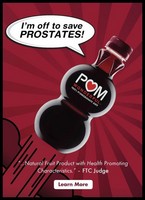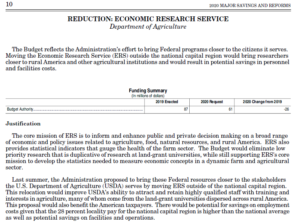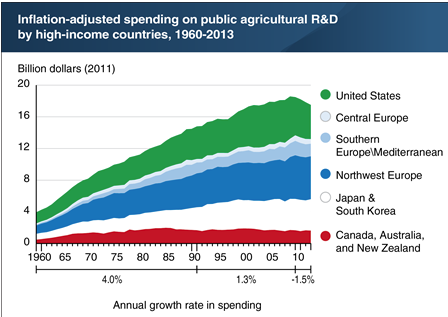POM Wonderful has a full-page ad in today’s New York Times (how much do these things cost?) titled “FTC v. POM: You be the judge.” The ad includes selected quotes from the judge’s decision (see yesterday’s post) and refers readers to its wonderfully named website, pomtruth.com, where you can see the quotes and the ads for yourself.
I couldn’t help doing some checking.
The POM ad quotes from Chief Administrative Law Judge’s decision:
Competent and reliable scientific evidence supports the conclusion that the consumption of pomegranate juice and pomegranate extract supports prostate health, including by prolonging PSA doubling time in men with rising PSA after primary treatment for prostate cancer (page 282).
I turned immediately to page 282. The sentence before the one quoted would seem to support it:
The basic research, the Pantuck Study, and the Carducci Study, relied on by Respondents [POM Wonderful], support the conclusion that pomegranate juice has a beneficial effect on prostate health.
But what follows the quotation makes it clear that although the research claims to support the effect, it really doesn’t. Here’s what immediately follows the quotation in the same paragraph:
However, the greater weight of the persuasive expert testimony shows that the evidence relied upon by Respondents is not adequate to substantiate claims that the POM Products treat, prevent, or reduce the risk of prostate cancer or that they are clinically proven to do do so. Indeed, the authors of the Pantuck Study and the Carducci study each testified that their study did not conclude that POM juice treats, prevents, or reduces the risk of prostate cancer. And, as Respondents’ expert conceded, no clinical studies, research and/or trials show definitely that the POM Products treat, prevent, or reduce the risk of prostate cancer.
I will just do one more of the quotes. The ad says:
Competent and reliable scientific evidence shows that pomegranate juice provides a benefit to promoting erectile health and erectile function (page 198).
This is indeed on page 198 but is followed immediately by:
There is insufficient competent and reliable scientific evidence to show that pomegranate juice prevents or reduces the risk of erectile dysfunction or has been clinically proven to do so…There is insufficient competent and reliable scientific evidence to show that pomegranate juice treats erectile dysfunction in a clinical sense or has been clinically proven to do so.
Because these statements are attributed to the same expert witnesses, this must mean that while some studies show benefits, the experts do not believe that these studies (many of them sponsored by POM) are scientifically credible.
Pomegranate juice is a juice. Fruit juices are healthy and especially delicious when fresh. I happen to like the taste of pomegranate juice.
But does it have any special health benefits as compared to orange, grapefruit, grape, or any other fruit juice?
Would any fruit juice be likely to prevent heart disease or prostate problems on its own?
Despite POM’s out-of-context advertisement, the Administrative Law Judge did not think so, and neither do I.
Addition: I’m indebted to FoodNavigator.com for noticing some of the other ads.

The caption reads: “Natural Fruit Product with Health Promoting Characteristics–FTC Judge.”







